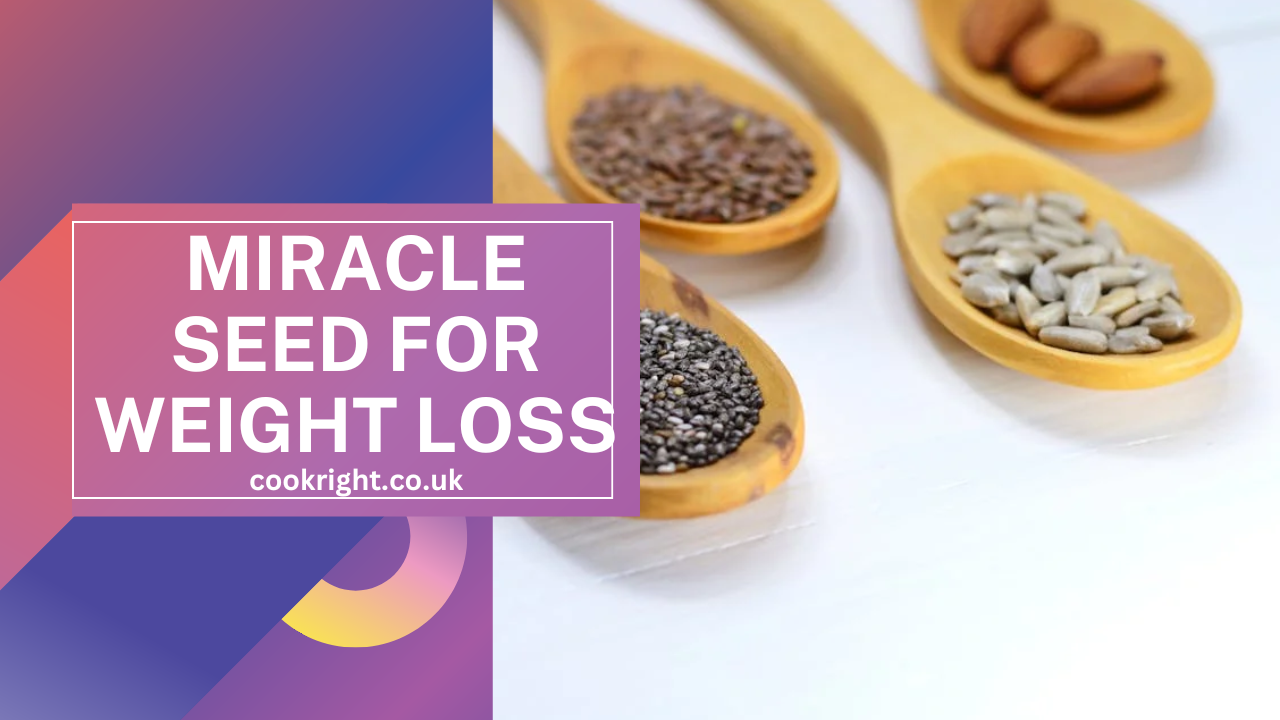The search for effective weight loss solutions is never-ending, and the latest buzz is about the so-called “miracle seeds.” These seeds, often touted for their weight loss benefits, have captured the interest of health enthusiasts and dieters alike. But what exactly are these miracle seeds? Do they live up to the hype, or is it all just another fad? Let’s dive in and explore the facts behind miracle seeds and their potential role in weight loss.
What Are Miracle Seeds?
“Miracle seeds” is a catch-all term often used to describe various types of seeds that are believed to aid in weight loss. Commonly featured in this category are chia seeds, flaxseeds, and fenugreek seeds. Each of these seeds has unique properties and nutrients that can support a healthy diet and lifestyle, which in turn might contribute to weight loss. However, it’s important to understand that they aren’t magical solutions, and their effectiveness relies heavily on how they are incorporated into your overall diet and routine.
Types of Miracle Seeds and Their Benefits
- Chia Seeds
Chia seeds are tiny black or white seeds that come from the Salvia hispanica plant, native to Central America. They are packed with fiber, protein, omega-3 fatty acids, and various micronutrients. The high fiber content in chia seeds can help you feel fuller for longer, which might reduce overall calorie intake. When soaked, they form a gel-like substance that expands in the stomach, further enhancing satiety. - Flaxseeds
Flaxseeds are another popular “miracle seed” often included in weight loss discussions. They are a rich source of omega-3 fatty acids, particularly alpha-linolenic acid (ALA), and contain both soluble and insoluble fiber. The fiber helps promote a feeling of fullness, and the presence of lignans (a type of antioxidant) offers additional health benefits. Ground flaxseeds are more effective for weight loss since whole seeds may pass through the digestive system undigested. - Fenugreek Seeds
Fenugreek seeds have been used in traditional medicine for centuries, particularly in Ayurveda. These seeds are high in soluble fiber, which can slow down digestion and absorption of carbohydrates and fats. This slower digestion process can help in regulating blood sugar levels and controlling appetite. Some studies also suggest that fenugreek may help increase metabolic rate, although more research is needed in this area.
How Miracle Seeds Can Support Weight Loss
While no seed can directly cause weight loss, incorporating these “miracle seeds” into a balanced diet can offer several benefits that support weight management:
- Increased Satiety: High-fiber content in these seeds helps you feel full for longer periods, reducing the temptation to snack frequently or overeat.
- Improved Digestion: The fiber in these seeds not only aids in satiety but also supports healthy digestion, preventing issues like bloating and constipation that can be discouraging during weight loss journeys.
- Nutrient Boost: These seeds are nutrient-dense, providing essential vitamins, minerals, and healthy fats that support overall health and wellness, which is crucial when reducing calorie intake.
- Blood Sugar Regulation: By slowing the absorption of carbohydrates, these seeds can help prevent spikes and crashes in blood sugar levels, which can control hunger and energy dips.
How to Use Miracle Seeds in Your Diet
- Chia Seeds: Add chia seeds to smoothies, yogurt, oatmeal, or salads. You can also use them to make chia pudding by soaking them in almond milk or any preferred liquid.
- Flaxseeds: Ground flaxseeds can be added to smoothies, baked goods, cereals, and even as an egg substitute in vegan recipes (one tablespoon of flaxseed mixed with three tablespoons of water).
- Fenugreek Seeds: Fenugreek seeds can be soaked in water overnight and consumed on an empty stomach, ground and used in spice blends, or brewed into tea.
Potential Downsides and Considerations
While miracle seeds are generally safe for most people, it’s essential to use them in moderation. Overconsumption can lead to digestive issues, such as bloating or diarrhea, especially if you suddenly increase your fiber intake without adequate hydration. Additionally, some seeds, like flaxseeds, contain phytoestrogens, which might interact with certain medications or health conditions. Always consult a healthcare provider before making significant changes to your diet, especially if you have underlying health concerns or are taking medications.
Conclusion: Are Miracle Seeds the Answer?
Miracle seeds can be a beneficial addition to a healthy diet, offering support for weight loss through their nutrient density and ability to promote satiety. However, they are not a standalone solution. Effective weight loss requires a comprehensive approach, including a balanced diet, regular physical activity, and healthy lifestyle habits. While miracle seeds can play a supportive role, the key to long-term success lies in sustainable and holistic changes rather than relying on any single “miracle” food.
So, next time you hear about the latest superfood craze, remember that the real miracle lies in consistency, balance, and a commitment to overall health!








